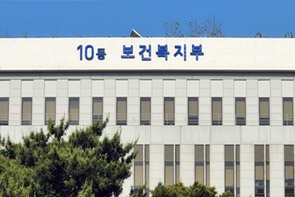Top Head
-

- by Kim, Jin-Gu Jul 4, 2025 06:06am
Tensions are rising in the pharmaceutical and biotech industry amid speculation that the external reference pricing reevaluations may be pushed forward again in the second half of this year. The industry is reacting sensitively, as the proposal previously discussed by the consultative body could lead to large-scale drug price cuts if adopted as is. External reference pricing reevaluation that was scheduled for this year... specific promotion schedule unclear According to industry sources on the 3rd, there is a possibility that the external reference pricing reevaluations will be pushed forward again in the second half of this year. Once the organizational restructuring is complete with the appointment of the Minister of Health and Welfare, it is expected that discussions on external reference pricing reevaluations will resume. The Lee Jae-myung administration has nominated Jeong Eun-kyung (60), former head of the Korea Disease Control and Prevention Agency, as Minister of Health and Welfare. With the appointments of the first and second vice ministers already finalized, the reorganization of the MOHW will be mostly complete once Jeong passes her confirmation hearing and is officially appointed as minister. This has led to speculation that the MOHW will accelerate its efforts to revive policies that have been effectively put on hold since the state of emergency was declared at the end of last year. Discussions on reevaluating foreign drug prices began in earnest at the end of 2023. The government formed a task force (TF) with the participation of the pharmaceutical industry and held a total of 10 meetings until July last year. The meetings discussed the foreign drug price reference standards, the targets for reevaluation, and the implementation date. It was decided to lower domestic drug prices in line with the adjusted average prices of the 6 countries with the highest and lowest prices among the A8 countries (the US, Japan, Germany, the UK, France, Switzerland, and Italy). The price cut will apply to 22,920 drugs listed on the drug reimbursement list, which will be divided into three categories and re-evaluated every three years. However, there were still some areas where no consensus was reached. These include the method of referencing Germany and Canada's drug prices. Ultimately, the pharmaceutical industry proposed to the government that the drug price reference standards for Germany and Canada be changed and that the drug price reduction rate be reduced by 50%. The government had originally planned to announce its final proposal by the end of last year and conduct the reevaluation in the first half of this year. It then planned to begin full-scale drug price adjustments in the second half of this year. However, all discussions were suspended after the state of emergency was declared at the end of last year. This situation continued until recently due to the impeachment of the president and early presidential elections. An industry official said, “As far as I know, there have been no official or unofficial discussions on the external reference pricing reevlautions since the last meeting last year. A new Director of the Division of Health Insurance Benefits has been appointed, but the situation remains the same.” Various scenarios proposed, ranging from “including integrated post-marketing management measures” to “excluding Germany and Canada” The pharmaceutical industry appears to be feeling burdened by the mere fact that related discussions may be restarted. An industry official said, “Although the continued uncertain state is unsettling, it is better than having a definite implementation schedule. There is an underlying hope that the discussions stay suspended for a long time.” With the implementation schedule and details still unclear, various scenarios are being raised. Some predict that the plan for the external reference pricing reevlautions will be included in the integrated post-marketing management plan and be renegotiated from scratch. This prediction is gaining traction given that President Lee Jae-myung promised to integrate and advance Korea’s post-marketing management of drug prices. In addition, there are predictions within and outside the MOHW that the government will partially accept the pharmaceutical industry's opposition. The government is expected to partially accept the pharmaceutical industry's opposition to the German and Canadian drug price reference methods and either exclude those two countries or change the reference method. On the other hand, there are also predictions that the government will push ahead with the reevaluation as originally planned. In this case, significant opposition is expected as considerable damage to the pharmaceutical industry is anticipated. A pharmaceutical industry official said, “Discussions on various pressing issues have been suspended. At present, it is difficult to predict when and how they will resume. However, it seems likely that discussions will resume in some form in the second half of this year.” The official added, “Among these, concerns about the resumed external reference pricing reevaluations are particularly high. If the re-evaluation proceeds as previously discussed, the damage is expected to be very significant. If the government decides to proceed with this, it must first once again engage in discussions with the pharmaceutical industry.”
Headline
- Company
- 'Tecentriq' reattempts at lung cancer adjuvant therapy reimb
- by Eo, Yun-Ho Jul 4, 2025 06:06am
- 'Tecentriq,' immunotherapy for cancer, will be submitted again for expanded insurance reimbursement of adjuvant therapy for lung cancer. According to our press coverage, Roche Korea applied for expanded reimbursement of its PD-L1 inhibitor Tecentriq (atezolizumab) and is awaiting review by the Cancer Disease Review Committee (CDRC) of the Health Insurance Review & Assessment Service (HIRA). It is their third attempt. The detailed indication that the company is applying for expanded reimbursement is 'adjuvant therapy after resection and platinum-based chemotherapy for Stage II-IIIA non-small cell lung cancer (NSCLC) where PD-L1 is expressed in 50% or more of tumor cells (TC).' Tecentriq was first submitted to the CDRC in May 2023; however, at that time, reimbursement criteria for the drug had not been established. Then, the company made a second attempt, but it did not pass the CDRC in July of last year. At that time, Roche presented overall survival (OS) improvement results at the American Society of Clinical Oncology (ASCO) meeting, but the company did not receive the outcome. Consequently, it is to be watched whether Tecentriq receives a different outcome at the third attempt. Meanwhile, Tecentriq is indicated for various types of lung cancer and was the first immunotherapy to be approved for first-line treatment of extensive-stage small cell lung cancer in combination with carboplatin and etoposide (chemotherapy). Furthermore, it continues to conduct various clinical studies to address unmet medical needs in advanced or metastatic NSCLC, either as a monotherapy or in combination with other targeted therapies, chemotherapy, or immunotherapies. NSCLC is a key lung cancer type that accounts for approximately 85-90% of lung cancer, which is the leading cause of cancer death in Korea. A significant number of patients are diagnosed at the locally advanced or metastatic stage, and about half of NSCLC patients who undergo complete resection still experience cancer recurrence after surgery. NSCLC poses a heavy burden on these patients.
- Policy
- National Office of Investigation announces rebate crackdown
- by Lee, Jeong-Hwan Jul 4, 2025 06:06am
- Amidst the National Police Agency's announcement of a special crackdown on illegal drug rebates following the launch of the new administration, the Ministry of Health and Welfare is also busy assessing the situation. The MOHW plans to actively consult with the National Police Agency if it receives a specific request for cooperation to crack down on illegal rebates. On the 2nd, an official from the MOHW explained, “The issue of illegal rebates is understood to be part of a national policy agenda related to the National Police Agency's special crackdown, aimed at eradicating corruption and promoting integrity among public officials.” However, the official said that no separate request for cooperation has been made by the National Police Agency to MOHW for the special crackdown on rebates so far. The Ministry of Health and Welfare is currently maintaining its routine of monitoring cases and referring them to investigative agencies such as the police, in accordance with the guidelines for handling illegal pharmaceutical rebates. The ministry also plans to respond to future requests for cooperation. The official said, “The MOHW requests investigations by the police or the prosecution when it receives external reports or complaints related to rebates. This is in accordance with our guidelines for handling rebates. The police or the prosecution launches an investigation, then reports the results to the MOHW.” He added, “There are cases where the police request an authoritative interpretation to the MOHW when legal interpretation is necessary, such as whether there has been a violation of the Pharmaceutical Affairs Act, and some investigative agencies request the submission of expenditure reports. In response to some requests earlier this year, we provided (submitted expenditure reports) within the scope that could be disclosed.” He added, “There are no immediate plans or policies regarding the media reports, but we are cooperating with the prosecution and the police and are requesting investigations if necessary.”
- Opinion
- [Reporter’s View] NHI finances and reimb expansions
- by Lee, Jeong-Hwan Jul 4, 2025 06:06am
- Striking a balance between improving the financial sustainability of the national health insurance system and enhancing patient access to drugs for rare and intractable diseases is a national issue. The two issues that repeatedly come into conflict have long occupied the attention of all political parties in their search for solutions, yet a clear and definitive answer has remained elusive. With ample finances, there would be no need to agonize over finding concrete solutions. The problem is that the surplus funds available for drug expenses within the health insurance budget are becoming increasingly scarce. The global paradigm for new drugs is rapidly shifting from chemical drugs to biopharmaceuticals. Global big pharmas are focusing on developing ultra-high-priced one-shot treatments for severe and intractable diseases for which there are no effective drugs, and the number of biopharmaceuticals approved in Korea is increasing accordingly. This in turn is increasing the health insurance authorities' concerns. There are an increasing number of cases where expensive drugs with therapeutic effects proven through clinical trials are being developed, but there are insufficient financial resources to ensure patient access to each and every drug that emerges with health insurance coverage. Another issue is that the entry of ultra-high-priced drugs for severe and intractable diseases developed by global big pharmas into the Korean market poses an unintended threat to domestic pharmaceutical companies. In order to increase reimbursement for ultra-high-priced drugs within the limited national health insurance budget, the easiest measure is to reduce the insurance ceiling price (drug price) of existing drugs to create financial leeway. This means that the prices of drugs manufactured by most domestic pharmaceutical companies that maintain their business with generic drugs are likely to fall. Drug price experts often describe the repeated administrative practice of lowering prices of already approved drugs to fund high-cost drugs as a zero-sum game. This expression metaphorically describes the reality of having to balance two conflicting priorities: expanding treatment opportunities for patients with severe and rare diseases while also supporting the domestic pharmaceutical industry, both of which are inextricably linked to the limited national budget. As such, the new administration is tasked with the challenge of reducing or eliminating the conflict zone between two zero-sum goals: “enhancing the sustainability of the national health insurance finances” and “improving access to new drugs.” Among the many ways to solve this problem, this reporter has two suggestions for the new administration based on the opinions of drug price experts. First, I ask the government to take the courage to pursue a new agreement on the allocation of health insurance drug expenses and consider the establishment of a separate fund for severe and intractable diseases, targeting high-cost drugs, as an additional funding source. This means reducing health insurance drug costs for mild diseases (by increasing patient copayments) and launching a process to gather opinions and reach a consensus across society and the public on expanding reimbursement for severe diseases, while at the same time securing additional financial resources with the mission of improving access to high-cost drugs. Both are expected to face significant challenges in implementation, but given the recurring zero-sum nature of the issue, it is an issue that cannot be ignored any longer. President Lee Jae-myung has repeatedly pledged to design a true Korea. We hope that the process of deriving a social consensus on a genuine health insurance policy aligned with the principles and philosophy of the National Health Insurance System will take its first steps in tandem with the design of a true Korea.
- Company
- Lilly launches Ebglyss in Korea… sparks competition
- by Son, Hyung Min Jul 3, 2025 06:12am
- The official launch of Lilly's Ebglyss has expanded treatment options for atopic dermatitis patients in Korea. With the arrival of Ebglyss, the number of biological agents available for the treatment of atopic dermatitis in Korea has increased to three. Experts welcomed the emergence of diverse treatment options but emphasized that there is still room for improvement in terms of patient access, due to the inability to switch between different classes of drugs. On the 2nd, Lilly Korea held a press conference at the Plaza Hotel in Jung-gu, Seoul, to commemorate the domestic launch of Ebglyss. Ebglyss is a new biological agent that selectively blocks interleukin (IL)-13, a cytokine that is a major cause of atopic dermatitis. This treatment was approved in August last year as a treatment for moderate-to-severe atopic dermatitis in adults and adolescents aged 12 years and older (weighing 40 kg or more) who are not adequately controlled with topical treatments or for whom these treatments are not recommended, and was granted reimbursement starting this month. Previous atopic dermatitis treatments included Dupixent, which inhibits IL-4 and IL-13, the Janus kinase (JAK) inhibitor Rinvoq, and Adtralza, which targets IL-13. However, the introduction of Ebglyss has expanded treatment options. As atopic dermatitis is a chronic condition with no cure and a long treatment period, diverse treatment options are essential. Ebglyss has demonstrated efficacy and safety in Phase III clinical trials, including ‘ADvocate-1,’ 'ADvocate-2,‘ and 'ADhere.’ In the ‘ADvocate-1’ and ‘ADvocate-2’ studies evaluating Ebglyss monotherapy, the Ebglyss group achieved an EASI-75 response rate of 58.2% and 52.1% during the induction period (0&8211;16 weeks), compared to 16.2% and 18.1% in the placebo group. The EASI-90 rate was 38.3% and 30.7% in the Ebglyss group, respectively, while the placebo group was 9% and 9.5%. EASI measures the severity and spread of atopic eczema. Also, after one year of maintenance therapy, the EASI-75 achievement rate in the severity group at Week 52 was 81.7%, and the EASI-90 ratio was 66.4%. These figures were higher than those in the placebo group (66.4% and 66.4%, respectively). In terms of safety, the most common adverse reactions were conjunctivitis (6.9%), injection site reactions (2.6%), allergic conjunctivitis (1.8%), and dry eyes (1.4%). Most adverse reactions were mild or moderate and did not lead to treatment discontinuation. Professor Hyun-Chang Ko of the Department of Dermatology at Pusan National University Yangsan Hospital commented, “Dupixent can be administered at two-week intervals, but extending the interval tends to reduce its efficacy. Ebglyss demonstrated sustained clinical efficacy and safety even with monthly maintenance therapy. Its long-lasting therapeutic effect also offers the advantage of greater convenience in administration.” He added, “In particular, Dupixent had a high rate of erythema and conjunctivitis, and this rate was lower in the pivotal clinical trial for Ebglyss. In terms of safety, Ebglyss did not show any notable adverse reactions compared to the placebo group.” Despite the emergence of various treatments, unmet needs remain Ebglyss is the third biological agent to enter this market. With the introduction of Ebglyss, patients, following Dupixent from Sanofi and Adtralza from Leo Pharma. However, some experts say that despite the introduction of various treatments, there are still unmet medical needs. According to domestic atopic dermatitis guidelines, systemic treatment is strongly recommended for patients with moderate-to-severe atopic dermatitis. However, while the proportion of moderate-to-severe patients among domestic atopic dermatitis patients increased from 30.9% in 2002 to 39.7% in 2019, the prescription rate for systemic immunosuppressants in this patient group remained at just 5%. Min-kyung Shin, a professor of dermatology at Kyung Hee University Medical Center, said, “The effectiveness and side effects of each treatment may vary depending on the age and immune status of patients with severe atopic dermatitis. We are treating patients in consideration of their response to side effects such as latent tuberculosis, as well as whether the treatment can help with comorbidities, patient preferences, and clinical phenotypes.” Shin added, “Even though biological agents and JAK inhibitors are reimbursed in Korea, many patients are unable to receive optimal treatment due to financial burdens. Although it is possible to switch between biological agents and JAK inhibitors, it is still not possible to switch between treatments within the same class, so there is room for improvement.”
- Company
- Will twice-yearly Bayer's 'Eylea' become available in KOR?
- by Eo, Yun-Ho Jul 3, 2025 06:12am
- Twice-yearly administration of 'Eylea,' used to treat eye disease, is anticipated to be possible in South Korea. The Ministry of Food and Drug Safety (MFDS) is conducting a review of the expanded indication for the administration of Bayer Korea's high-dose Eylea (aflibercept) 8 mg at intervals of up to 6-months. The approval is expected in the second half of this year. The detailed indication under review is vision disorder due to neovascular or wet age-related macular degeneration (nAMD) or diabetic macular edema (DME). Eylea 8 mg is an anti-vascular endothelial growth factor (VEGF) with increased sustainability achieved by increasing the molar dose of the existing 2 mg product by four times. This drug's 6-month interval administration obtained expanded approval from the European Commission (EC). The efficacy of Eylea's long-term administration was demonstrated through the PULSAR study, which involved macular degeneration, and through the PHOTON study, which involved DME. In the extension period (weeks 96-156) of both studies, patients randomized to Eylea 8mg at week 0 maintained their vision and anatomical improvements. Notably, 24% of nAMD patients and 28% of DME patients maintained their final treatment interval at six months after three years. The safety profile of Eylea 8mg remained favorable throughout the three years in both studies, consistent with the established safety profile of Eylea 2mg. No new safety issues were observed in the long-term safety data from either study. The data includes patients who switched from Eylea 2 mg to 8 mg at week 96. Meanwhile, high-dose Eylea was approved in South Korea in 2024 and received insurance reimbursement starting in October of the same year. The current reimbursement criteria include patients with nAMD and DME who meet the conditions of Hemoglobin A1c (HbA1c) 10% or less and a minimum central retinal thickness of 300 &181;m. The current dosing interval involves monthly injections for the first three months, which can then be extended up to 16 weeks, based on the doctor's judgment, following the results of a vision or anatomical examination.
more articles
















